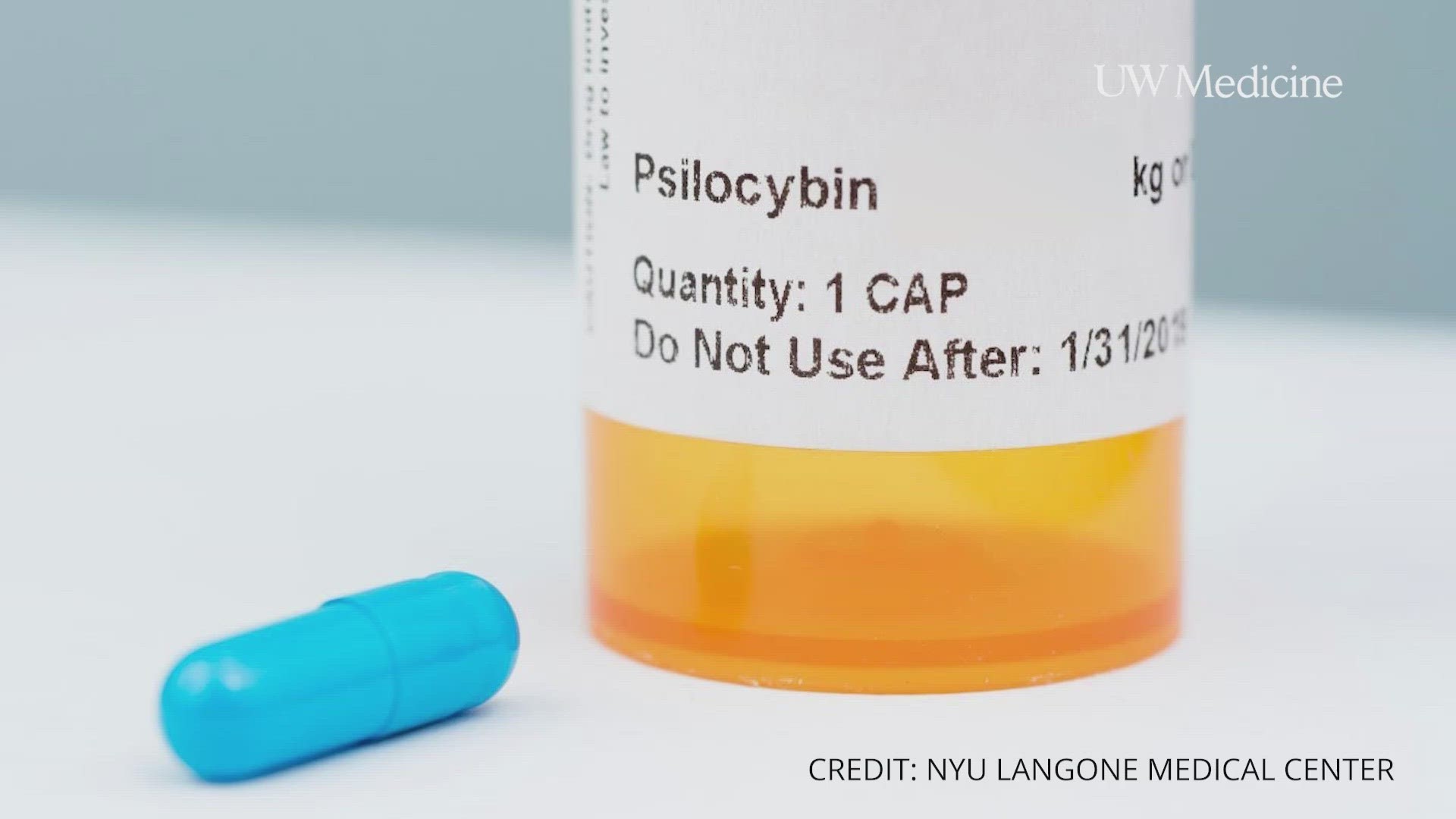SEATTLE — Newly passed legislation in Washington aims to further explore the power of psychedelic mushrooms as a tool for psychotherapy.
The University of Washington has the go-ahead to conduct a research trial using psilocybin, the compound found in what's commonly known as "magic mushrooms," to see if it can effectively and safely be used to treat mental health conditions.
The use of psilocybin in Washington is still illegal in the state, but on May 9, Gov. Jay Inslee signed legislation that enacts a state task force to further study it and lay the groundwork for a long-term strategic plan.
The bill, known as SB 5263, also authorizes UW Medicine to launch a pilot program to safely access and study psilocybin.
Dr. Nathan Sackett, an addiction psychiatrist and a professor at UW Medicine's Department of Psychiatry and Behavioral Sciences, is leading the pilot project that will help the state task force develop and better understand psilocybin as a potential mechanism for mental health treatment.
"Which is really a way to help address questions around safety and efficacy for patient populations that are typically not studied," Sackett said.
Sackett is particularly interested in how psilocybin therapy could help people who grapple with two disorders at the same time, such as post-traumatic stress disorder and alcohol use disorder.
"If we can give them this treatment safely, then perhaps it can provide more confidence that we can give it safely to a larger patient population," Sackett said.
While magic mushrooms have been decriminalized in Oregon and Colorado in recent years, lawmakers in Washington state say more needs to be learned.
"If they're going to get into the role of potentially widening access, we want to make sure it's safe for all people involved," Sackett said.
The research will look into how the psychedelic compound in psilocybin interacts with brain chemistry.
Sackett explained that when one ingests magic mushrooms, the compound that has the most psychoactive effects is psilocin, and psilocin enters the brain and acts on serotonin receptors.
Serotonin is the brain chemical that regulates multiple bodily functions, including mood. Sackett's team will study how psilocybin interacts with the part of the limbic system that handles emotion and the frontal cortex of the brain that handles reasoning and intellect.
"It alters the communication between those two parts and gives us the opportunity to reevaluate our own internal narrative if you will," Sackett said.
However, Sackett does not recommend people take magic mushrooms on their own, even for therapeutic reasons, without licensed supervision.
"The main therapeutic benefit comes in a controlled environment where you have the relationship with the therapist and someone who can help make meaning to the experience," Sackett said.
Sackett adds he wants to advance the science behind this potential treatment.
"I think we're at a point where we are in desperate need for more treatments for folks struggling with mental health concerns and substance use disorders. I'm hopeful this sort of work will move the needle in that direction and give us more tools to work with, with patients moving forward," Sackett said.
The UW Medicine trial will begin on January 2025.
Sackett and his team will initially include 30 to 40 people, namely, military veterans and first responders, who have documented experience with PTSD and alcohol use disorder.

